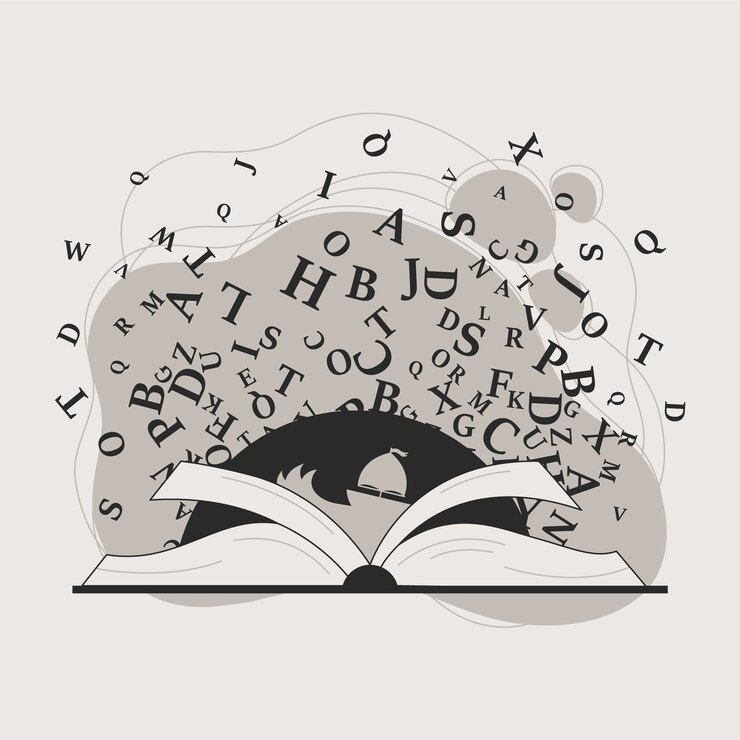Top 50 Popular LiteroticaTags Explained: What They Mean, How to Use Them & More
Discover the Top 50 Popular LiteroticaTags of 2025 with meanings, examples, and usage tips. Learn how these story tags help readers and writers connect.

In today’s digital storytelling world, millions of people enjoy reading short stories and novels online. From romantic plots to fantasy adventures, online platforms offer endless choices. But with such a vast library, readers often face one big problem — finding stories that truly match their taste.
That’s where LiteroticaTags come in. These small but powerful labels act like a roadmap, helping readers identify story themes, tones, and relationships before they even begin reading. For writers, tags make it easier to connect with the right audience and boost story visibility.
In this complete 2025 guide, you’ll learn what LiteroticaTags are, why they matter, the most popular ones this year, and how both readers and writers can use them effectively to enhance their online storytelling experience.
What Are LiteroticaTags?

LiteroticaTags are descriptive keywords or labels attached to online stories that quickly communicate what kind of story it is. Think of them as signposts — they guide readers toward stories that match their interests and expectations.
For example, a story tagged with Romance and First Time indicates a love story featuring two characters experiencing intimacy for the first time. These tags act as content identifiers, helping readers preview what lies ahead.
Mini Example:
“She had always seen him as just a friend — until that one night changed everything.”
Tags: Friends, Romance, First Time
Tags play an important role for both sides of the platform. They help readers find stories they’ll enjoy, enable writers to describe their work more clearly, and allow platforms to categorize and recommend content efficiently.
Why Are LiteroticaTags Important?
Tags are more than just labels — they’re an essential part of how stories are discovered and experienced online. They make searching for stories quick and effortless by organizing massive libraries into meaningful categories.
For readers, tags save time and improve comfort. Someone looking for a lighthearted romance can avoid darker or explicit content simply by checking or filtering tags. This ensures a safer, more enjoyable reading experience.
For writers, tags improve discoverability and accuracy. When a story is correctly tagged, it appears in relevant searches, reaching the audience most likely to engage with it. That means more reads, better feedback, and higher visibility.
In short, LiteroticaTags create balance between creativity and accessibility — making sure readers find what they love while writers reach those who truly appreciate their stories.
Types of LiteroticaTags

There are several types of LiteroticaTags, each serving a specific purpose. They can describe relationships between characters, settings, emotions, genres, or even the overall tone of a story. Let’s explore each one.
Relationship-Based Tags describe how the main characters are connected. Examples include Friends, Roommates, Married Couple, Teacher/Student, Neighbors, and Friends with Benefits. These help readers instantly understand the interpersonal dynamics.
Theme-Based Tags reveal the emotional or story theme, such as Romance, Revenge, Humor, Taboo, Slow Build, or Affair. They highlight the story’s tone and what kind of journey readers can expect.
Setting-Based Tags specify the backdrop of the story. Common examples include College, Office, Holiday, Public, and Massage. These tags let readers visualize where the story unfolds.
Consent and Safety Tags indicate whether the story contains sensitive or fantasy-based content. Examples include Consensual, Non-Consensual Fantasy, Forced Fantasy, Voyeurism, and Cuckold.
Note: These tags are fictional markers meant for clarity, ensuring readers know the context before reading.
Character Identity Tags define the gender or identity of the main characters. Examples include Male/Female, Female/Female, Male/Male, Bisexual, Interracial, and Teen 18+. These tags are key for readers who prefer specific character dynamics.
Fantasy and Genre Tags introduce imaginative or creative elements such as Fantasy, Sci-Fi, Fantasy Creature, Fetish, and Toys. These are especially popular among readers who enjoy escapism or non-realistic settings.
Together, these categories make the tagging system efficient, transparent, and inclusive for a global audience.
Top 50 Popular LiteroticaTags & Their Meanings (2025 List)

Here’s a verified list of the top 50 most popular LiteroticaTags in 2025, along with their meanings. These have been identified through user engagement patterns on major online storytelling platforms.
These tags highlight current reader preferences, where emotional depth and creative storytelling dominate digital platforms in 2025.
Top 10 Trending LiteroticaTags in 2025

Every year, certain tags rise in popularity depending on cultural shifts and reader interests. In 2025, the most trending LiteroticaTags include:
-
Friends with Benefits
-
Secret Affair
-
Slow Build
-
Fantasy Creature
-
Romance
-
Stranger
-
Office
-
Interracial
-
College
-
Quickie
These reflect a strong mix of realism and imagination — readers are drawn to stories that explore complex relationships as well as creative fantasy worlds.
Read Also: Jordan Asia Food Guide (2025): 7 Must-Try Dishes You Can’t Miss
Common Tag Confusions
Some tags look alike but are different. Here are a few:
-
Fantasy vs. Fantasy Creature
Fantasy = magic or unreal setting. Fantasy Creature = non-human characters. -
Voyeur vs. Voyeurism
Voyeur = the person watching. Voyeurism = the theme about watching. -
Non-Consensual Fantasy vs. Forced Fantasy
Both are fiction-only. They must be labeled and used with care.
How Writers Can Use LiteroticaTags Effectively

For writers, LiteroticaTags can greatly improve story performance when used correctly. The key is to be honest and precise. Choose only tags that truly match your story’s content. For instance, if your plot revolves around a romance that develops on a college campus, tags like College, Romance, and First Time would fit perfectly.
Avoid over-tagging — five to ten tags are usually enough. Adding unrelated tags may attract the wrong audience and reduce engagement. Always follow the tagging rules of the platform you publish on. Accurate tags make stories easier to discover and improve the credibility of the writer within the storytelling community.
How Readers Can Use LiteroticaTags

Readers can also use tags to personalize their experience. By checking tags, readers can instantly tell if a story fits their interests or comfort zone. Many platforms allow filtering by tags or even blocking certain ones, helping readers control what they see.
Trying new tags can also make reading more exciting. Exploring new categories or themes can lead to discovering entirely new types of stories. LiteroticaTags give readers the freedom to explore safely and enjoyably.
FAQs About LiteroticaTags
1. Are LiteroticaTags safe to use?
Yes. They are simply organizational keywords that make it easier to categorize and find stories.
2. Can I block certain LiteroticaTags?
Yes. Most platforms let you block or hide specific tags from appearing in your recommendations.
3. Do LiteroticaTags affect search ranking?
Yes. On platforms that use tags, accurate tagging helps your story appear in relevant searches and reach more readers.
4. Can I use any tag I want?
Writers should use only relevant tags that truthfully describe their story content. Misusing tags may violate platform rules.
5. Do LiteroticaTags improve story recommendations?
Yes. Algorithms use tags to recommend stories based on your reading history and preferences.
Final Thoughts
In 2025, LiteroticaTags have become an essential part of online storytelling. Across states like California, Texas, Florida, New York, and Illinois, readers are using tags like Romance, Slow Build, and Fantasy Creature to quickly find stories that match their interests.
For writers, tagging accurately means more readers and better engagement. For readers, it means discovering the right content faster and avoiding what they don’t want to see. LiteroticaTags make reading more personal, organized, and enjoyable — connecting stories with the people who appreciate them most.





![AutoZone Business Hours [2025]: Complete Guide to Store Times, Holidays & Tips](https://statesidemagazine.com/uploads/images/2025/06/image_140x98_6852d31a1eb7b.jpg)





